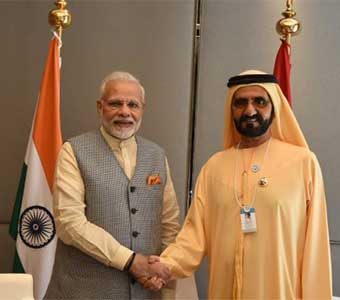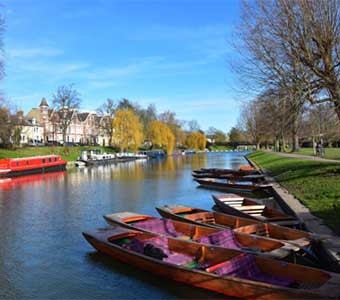Join the dots between India sending back Dubai princess Sheikha Latifa to UAE two years ago and the Gulf countries siding with Delhi on everything from oil to Kashmir.
UK court’s finding last week that Dubai ruler Sheikh Mohammed bin Rashid al-Maktoum had indeed tried to kidnap his two young children and threaten their mother and his sixth wife, has reopened the 2018 case of Princess Sheikha Latifa, an older daughter of the Dubai sheikh, who was forcibly taken off a boat off the coast of Goa by Indian marine commandos.
The Narendra Modi government’s involvement in Latifa’s kidnapping has been known for some time. But turns out, ‘returning’ the Dubai princess to her powerful father UAE has helped India strategically, no matter the horrible human price.
Kidnapping a princess
Details of the operation, first reported in April 2018, said the 4 March operation involved three Indian Coast Guard ships, including patrol vessels Samarth and Shoor, helicopters and a maritime surveillance aircraft, and that the US-flagged yacht, Nostromo, was located about 50 km off the Goa coast.
Later in December 2018, when Christian Michel, the alleged middleman in the Rs 3,600 crore AgustaWestland helicopter deal, signed during the UPA years, was extradited to Delhi and has since been languishing in jail, ThePrint reported how national security adviser Ajit Doval had “guided” the operation as a quid pro quo for kidnapping and returning Princess Latifa to her father.
The UK court last week, besides relying on Sheikh Rashid’s wife Princess Haya’s statements, also heard four witnesses, watched a Princess Latifa video (in which she says, “if you’re watching this I’m either dead… or in a very, very bad situation”) she made before her escape attempt to India and also looked closely into a UK police investigation of how Latifa’s elder sister, Princess Shamsa, was kidnapped by her father from Cambridge, UK, in 2000.
UK judge Sir Andrew McFarlane’s verdict certainly casts a sharp light on how the rich and powerful not only manipulate the law, but also think nothing of the rights of their own adult children who may want a life of their own.
Inadvertently, the UK judgment also looks at the concept of “national and strategic interest” that India invoked when it kidnapped Latifa and sent her back to her father. It didn’t matter to the Modi government that the Dubai princess was 32-years old and that she didn’t want to live in her gilded cage in Dubai, under her father’s strict supervision.
Support from the Gulf
Certainly, the Modi government’s hard-nosed realism has paid off. None other than the UAE and Saudi Arabia have either held their nose or looked the other way as large parts of the Islamic world – such as Iran, Turkey and Indonesia, as well as India’s closest neighbours Bangladesh and Afghanistan – have allowed large street protests against India’s amended Citizenship Act, which these countries believe discriminates against Muslims.
When Article 370 was scrapped in Jammu and Kashmir on 5 August 2019, the UAE, maintained a stubborn silence, saying it was an internal matter of India. When UAE foreign minister Sheikh Abdullah bin Zayed bin Sultan Al Nayhan, along with Saudi foreign minister Adel bin Ahmed Al-Jubair, visited Pakistan soon to show solidarity on Kashmir, the UAE minister insisted that this was not an issue of the Muslim Ummah but a bilateral dispute between India and Pakistan.
In February 2020, Saudi Arabia would not listen to Pakistan’s request to organise a standalone OIC foreign ministers meeting to discuss Kashmir, leading Pakistani Prime Minister Imran Khan to say in irritation, “The reason is that we have no voice and there is total division amongst us.”
Modi was smart enough to catch the wind early. The friendship between UAE’s ruler Mohammed bin Zayed (known as MBZ) and the Saudi Crown Prince Mohammed bin Salman (known as MBS) is the talk of the Arab world. MBZ is believed to have supported the young Salman’s ambition to become the crown prince over that of a cousin. When MBS was put on the mat by international human rights critics for the murder of Saudi dissident journalist Jamal Khashoggi, MBZ came to his aid.
It helps, enormously of course, that both powerful men are best friends with US President Donald Trump – as well as Prime Minister Narendra Modi.
Gamble that paid off
On 24 August 2019, with Kashmir under lockdown mere days after the dilution of Article 370, Modi stopped over in Abu Dhabi so that MBZ could confer upon him UAE’s highest civilian honour, the Order of Zayed. The significance that this is the birth centenary of MBZ’s father, in whose honour the award has been named, was not lost on the Arab world.
Not for nothing was MBZ chief guest to India’s Republic Day ceremony in 2017.
Ties between India and the Gulf predate the exit of the British from the subcontinent in 1947 (the UAE only became independent from Britain in 1971), but were consolidated during the boom years, when blue collar Indians (and Pakistanis and Bangladeshis) practically built the cities of the region with their bare hands. Trade today stands at $100 billion, a testimony to the growing partnership between the two sides.
As for oil, as Trump’s sanctions against Iran approached, India switched allegiances, with blessings from the US, to Saudi Arabia – it is now India’s top exporter. Saudi Arabia has announced it will take a 20 per cent stake in Mukesh Ambani’s Reliance oil-to-chemical business worth $75 billion, while Saudi Aramco and UAE are jointly building a $60 billion refinery in Raigad, Maharashtra.
Certainly, for Modi, the turnaround is even sweeter because UAE and Saudi Arabia were the only two countries in the world – besides Pakistan – which recognised the Pakistan-backed Taliban government in Afghanistan in 1996.
It’s been two years since Princess Latifa was kidnapped by Indian marine commandos and sent back to her father. Question is, are India’s strategic national interests more important than the adult woman’s human rights?







